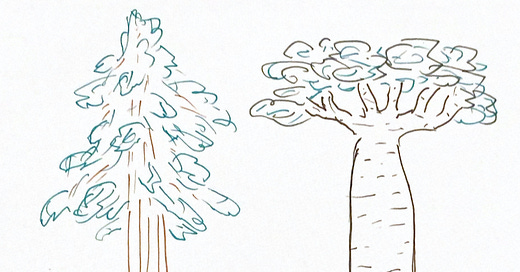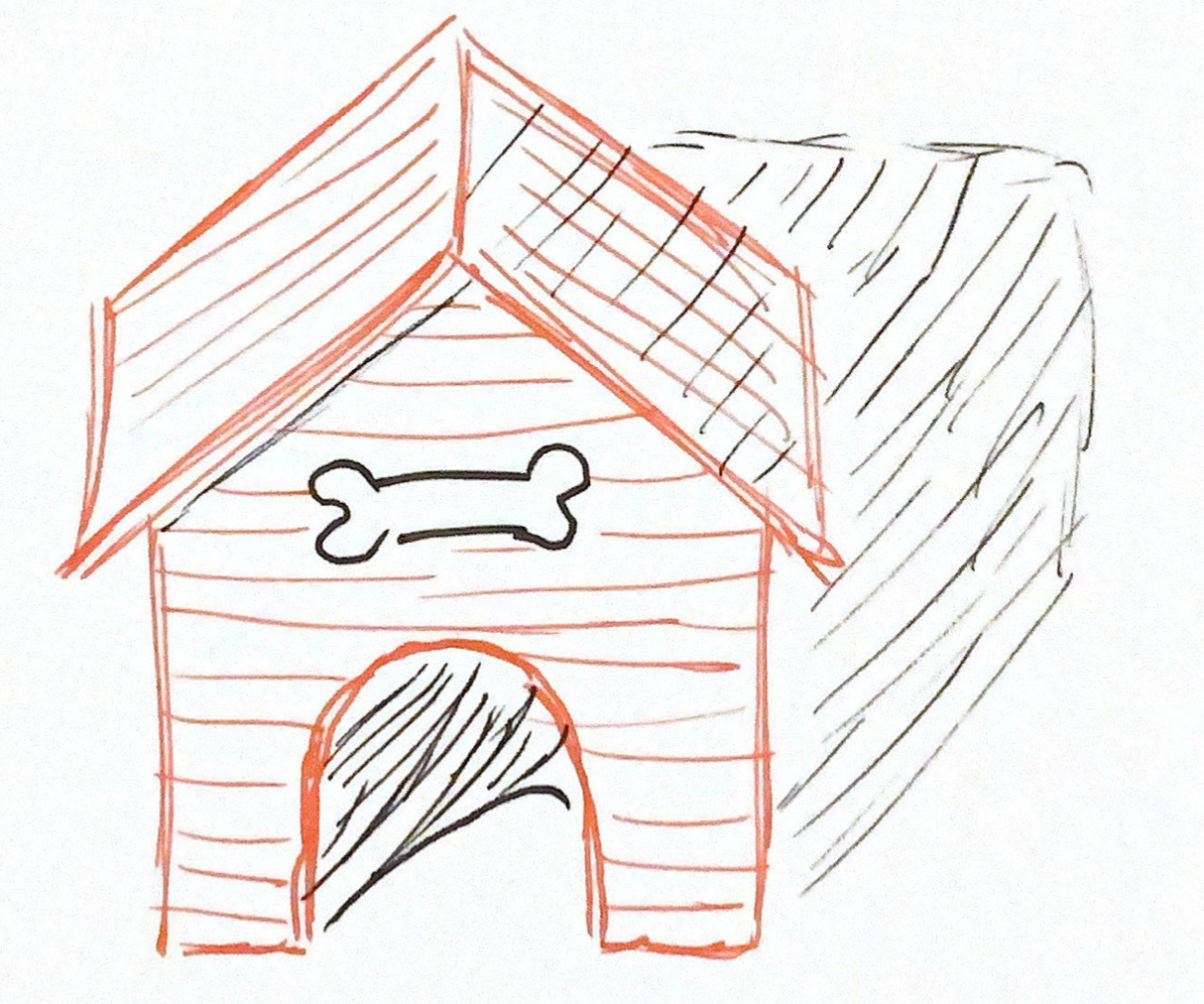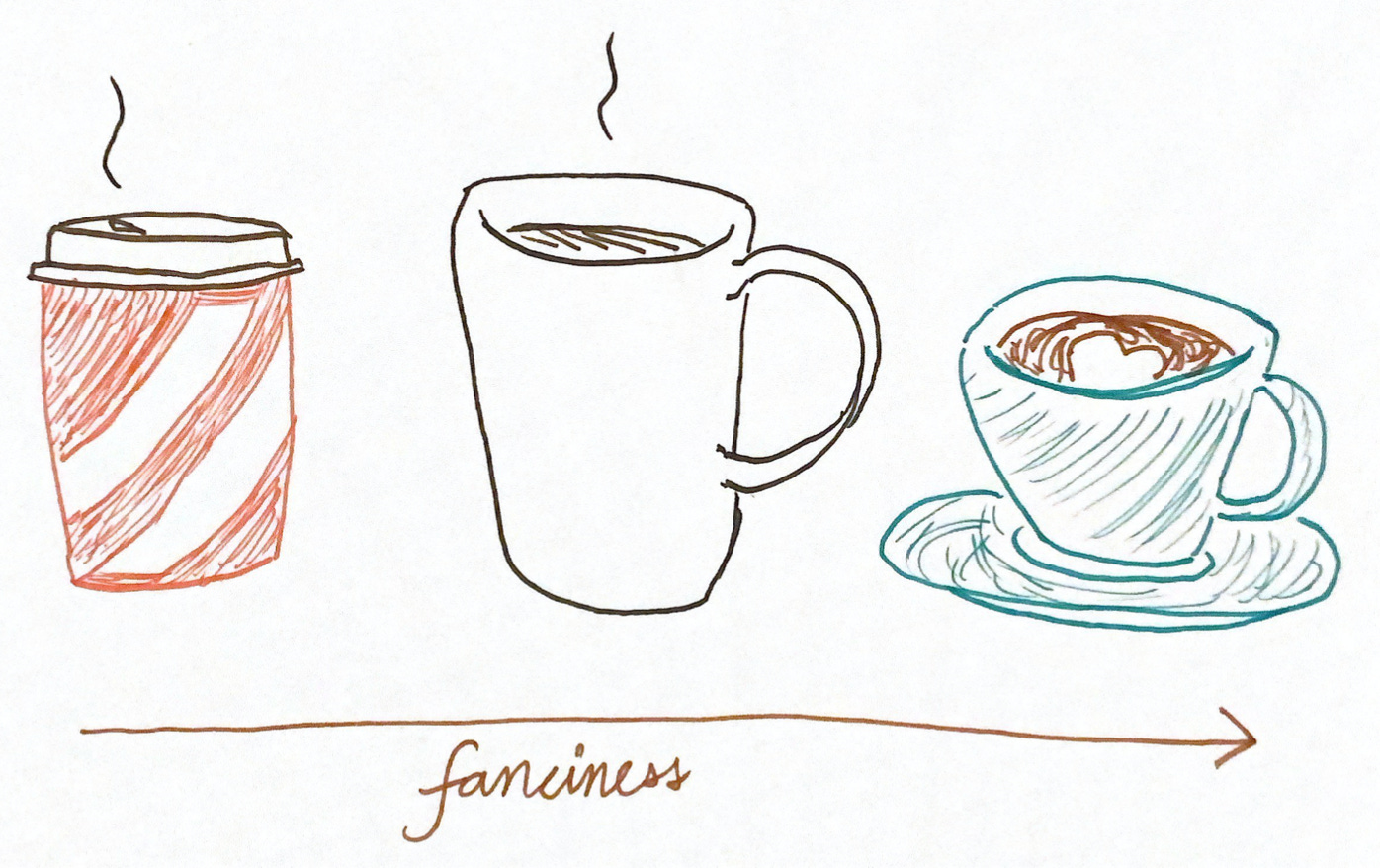Unleash the Niche
From nests to statues to forests to coffee shops, a look into the concept and origins of the niche idea 🌲
Happy Wednesday!
This is issue #11 of Light Gray Matters and today I’m writing about the concept of the niche.
What is a niche? It can be many things. First, it can be a thing that is pronounced neesh or a thing that is pronounced nitch, and no one agrees on the correct way to say it.
Whatever its pronunciation, the English word is a loan from the French (where it sounds something like nish, a convenient middle ground that allows me to avoid taking sides). It ultimately comes from Latin nidus, meaning ‘nest.’ That meaning still exists in French through the verb nicher, but today, use the noun niche with any French speaker and the only thing they’ll think of is a doghouse or kennel.
At some point, the word evolved from a nest for birds or dogs into a nest for statues, and so one of the meanings of niche is this sort of architectural hollow thing in a wall:
(I don’t know who this guy is but he sure looks judgmental)
And then, thanks to the creativity of some American biologists in the early 20th century, the word leapt into a totally different discipline: ecology.
An ecological niche is the relationship between a species and the set of environmental conditions to which it is adapted. For example, imagine a rainforest. There’s a lot of moisture, which allows the growth of really tall trees. So one (or a few) species of tall trees evolves, or colonizes the area, occupying the “tall tree” niche. A different forest somewhere else in the world will have the same niche — but it will be filled by, perhaps, a different kind of excessively tall tree.
(well, okay, baobabs don’t grow in rainforests, but I felt like drawing one, to the risk of damaging the credibility of my examples)
And then that is only one niche. The same forest has a niche for smaller trees. One for trees that grow fast and that can colonize an area after a fire. One for plants growing on the trees (e.g. vines, ivy). One for parasitic fungus. One for tiny mammals. One for larger mammals who eat the smaller mammals. One for carnivorous legless reptiles. One for pollinator insects. And so on and so forth (and there can be many species occupying each niche, or, more often, very slightly different niches).
As I wrote two weeks ago, biology is often a great metaphor for culture, and niches are no exception. Economically (notice the prefix eco-), niches can be used to describe the various market segments that you can exploit for commerce.
I’m the kind of person who pays attention to coffee shops. So, once, when travelling in another city than my own, I had fun mapping the niches of coffee shops between the two cities. Each city has its cheap, industrial-grade chain coffee shops. Its cafés that are also a chain but market themselves as somewhat fancy. Its very hip third wave cafés that tell you the name and country of their espresso and sell those conical coffee drippers. Its cafés with a really nice atmosphere and interior design, but not actually good coffee. And so on and so forth (and there can be many cafés occupying each niche, or, more often, very slightly different niches).
From there, only a slight leap is needed to reach the most common way the word “niche” is used on the Internet. To quote a great writer (me):
Anyone who creates or sells something must ask themselves this question. What is that specific, unique thing you can bring to the world? What is the small part of the global market that you can serve?
It is a… deep question. And not an easy one.
I’ve always thought of myself as a generalist — a polymath, even, when I felt pompous. Someone who’s curious and interested in many things. But it seems pretty clear that you will attain greater success in life if you focus on one thing that you do really well.
So last year, when I decided to ramp up my online writing, I decided to Set Out and Figure Out My Niche.
…only to realize that it Really Doesn’t Work Like That.
Last October, I created a discussion channel in a writing forum to help myself and others find our niches. And the most common advice — which I now fully agree with — was that it’s a rather futile exercise. Depending on your goals, you shouldn’t top-down decide what your niche will be. It would be like deciding from the get-go what clientele your coffee shop will serve, regardless of what the people of the city want. It would be like evolving plump tree leaves to catch the moisture — without knowing if you’ll end up in a rainforest or a savanna.
Instead, you should experiment. Try many things. Write a lot. You should follow your interests, create good writing habits, share what you love. And eventually, your niche will emerge. You’ll realize you’re good at something unique — most likely some combination of skills, interests and knowledge — that other people enjoy.
So that’s where I am. The closest thing I have to a niche is writing about the evolutionary origins of things. But is that really my niche? Probably not quite. There are tons of other things I like or can do that aren’t involved in that.
I expect that over time, I will achieve clarity.
Ecologically yours,
Étienne
Salon: Ted Chiang
There’s still time to join my Ted Chiang discussion Salon! If you think you don’t have time to read the stories by Sunday, well, there’s time, they aren’t that long! And in any case, you should read them even if you don’t come. Ted Chiang is that good.










